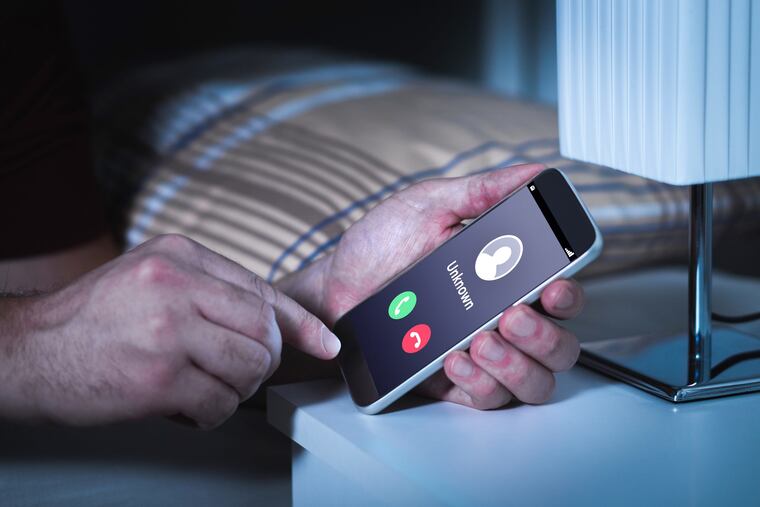'Time to end the robocall epidemic’: Members of Congress want carriers to block unwanted calls
The measure would force carriers to implement technology that confirms incoming calls are actually from the owner of the number listed on a caller ID.

A pair of U.S. House lawmakers unveiled a bipartisan bill Thursday to fight the rise of robocalls, a month after the Senate adopted its own measure to protect consumers from unwanted spam calls.
Reps. Frank Pallone Jr. (D., N.J.) and Greg Walden (R., Ore.) introduced legislation that would force carriers to implement technology that confirms incoming calls are actually from the owner of the number listed on a caller ID. The measure also requires the Federal Communications Commission to issue rules shielding consumers from calls they didn’t agree to receive, and ensures carriers can’t charge customers for call-blocking services.
The measure comes as Americans receive billions of robocalls each month. There were 4.7 billion robocalls placed in the United States in May, down slightly from the record 5.2 billion in March, according to YouMail, a robocall-blocking application.
“Americans deserve to be free of the daily danger and harassment of robocalls,” Pallone and Walden said in a joint statement. “It’s time we end the robocall epidemic and restore trust back into our phone system. We’re pleased to announce we’ve reached a deal on comprehensive bipartisan legislation to stop illegal robocalls.”
The rapid rise of robocalls has been driven in part by caller ID “spoofing," technology that allows scammers to place calls that appear to come from local numbers or legitimate businesses. Nearly half of all mobile calls this year will come from scammers, according to First Orion, an Arkansas-based call-management company.
The phone industry has been working on a solution to let consumers trust their caller IDs again. The technology is called STIR/SHAKEN, which stands for the Secure Telephone Identity Revisited (STIR) and for Signature-based Handling of Asserted information using toKENs (SHAKEN) and is a protocol for authenticating phone calls.
The House bill would give phone companies no more than a year and a half to implement the call verification technology. The legislation also requires regulators to update the definition of a robocall, which could potentially cover a wider array of companies, and gives authorities more time to find violators by extending the statute of limitations from one year to three or four in some cases, among other provisions.
Last month, the Senate passed anti-robocall legislation that is similar to the House bill, according to the Washington Post.
“There’s still more to be done and there is a lot of responsibility placed on the FCC to protect consumers,” Margot Saunders, senior counsel for the National Consumer Law Center, said in a statement. “Robocalls plague voters of all political stripes so we are especially pleased to see a bipartisan effort on this bill. We hope this is the first of several positive steps that Congress will take.”
The FCC adopted rules this month that will let carriers block unwanted calls without consumers needing to sign up for the service.